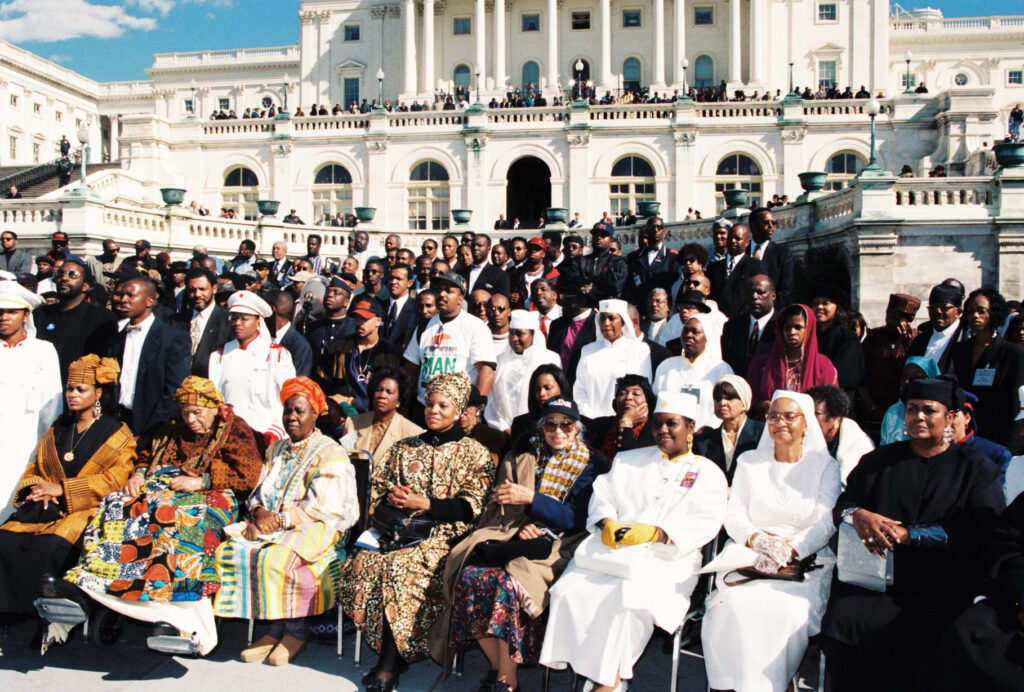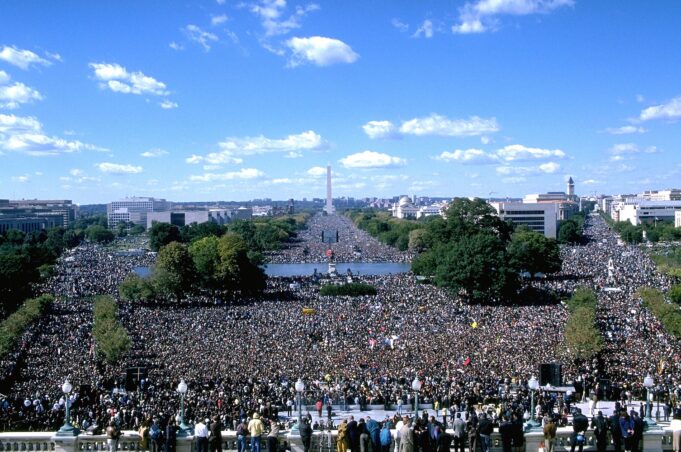On Monday, October 16, 1995, the Honorable Minister Louis Farrakhan, National Representative of the Most Honorable Elijah Muhammad, Eternal Leader of the Nation of Islam, called for one million Black men to meet him in Washington, D.C., for a Holy Day of Atonement, Reconciliation and Responsibility. Nearly two million showed up on that majestic and historic day.
“No nation has assembled this number of men to make atonement to God, to others we may have offended, to reconcile differences in our families, differences in our communities and to accept responsibility for our actions that have sown division, hurt and pain among us,”stated Minister Farrakhan in his reflections of the Million Man March in 2020 published in The Final Call.
“October 16 was the beginning of a process of healing. The day represented a high point in our development achieved through the Guidance of God and the fellowship of men and women, brothers and sisters from many different walks of life. We came with different ideologies, religious beliefs, and political aspirations,” said Minister Farrakhan.
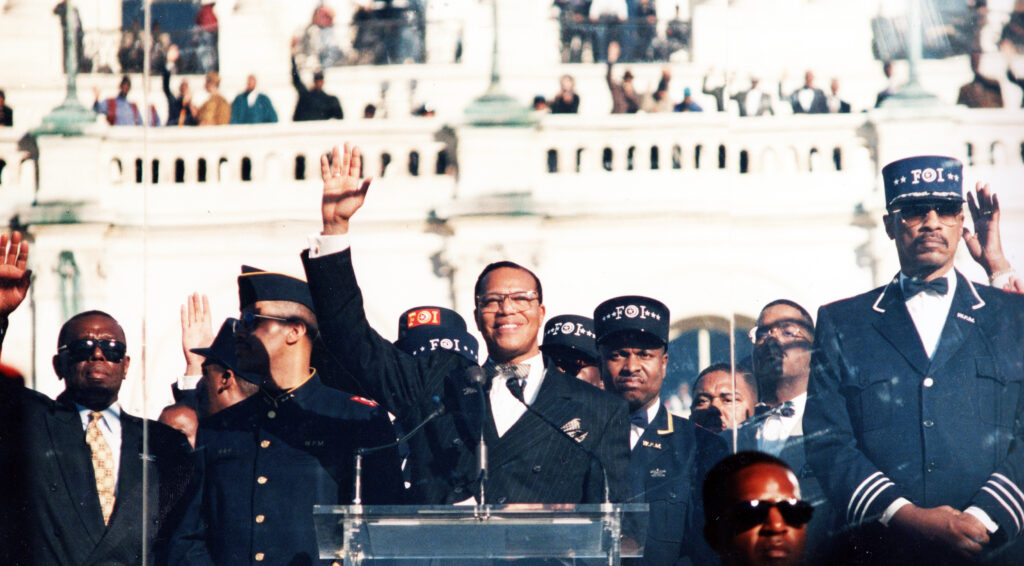
The healing that began that day continues and is still needed 29 years later. Nearly three decades after the Million Man March, the Black community is still challenged by conflicts and divisions. This includes disputes in families, male-female relationships, street organizations, religious, cultural, and political divides, and more.
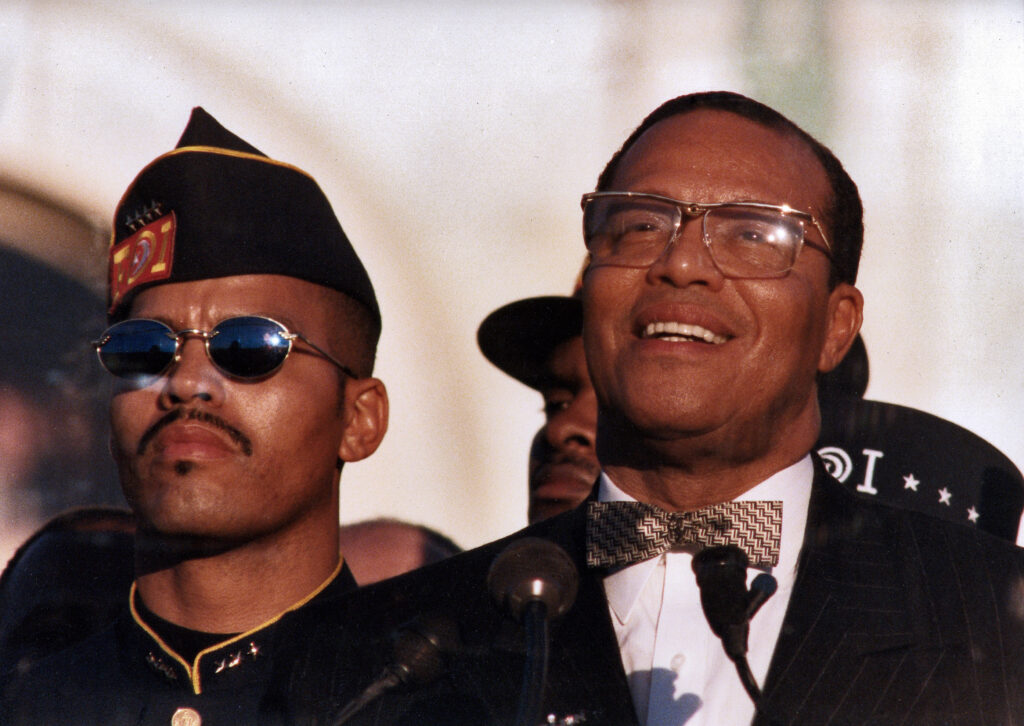
These tensions and misunderstandings warrant a commitment to a renewed focus on atonement, reconciliation, responsibility, unity, the resurrection and upliftment of Black people, and the fundamental principles of the Million Man March and Holy Day of Atonement.
That day, Minister Farrakhan also introduced the Eight Steps of Atonement and the Million Man March Pledge to be internalized, implemented and shared to start healing, repairing and unifying Black families and communities.
“The day of atonement is established by God to help us achieve a closer tie with the source of wisdom, knowledge, understanding and power.
For it is only through a closer union or tie with Him who created us all, with Him who has power over all things that we can draw power, knowledge, wisdom and understanding from Him, that we may be enabled to change the realities of our life. A perfect union with God is the idea at the base of atonement,” said Minister Farrakhan at the Million Man March.
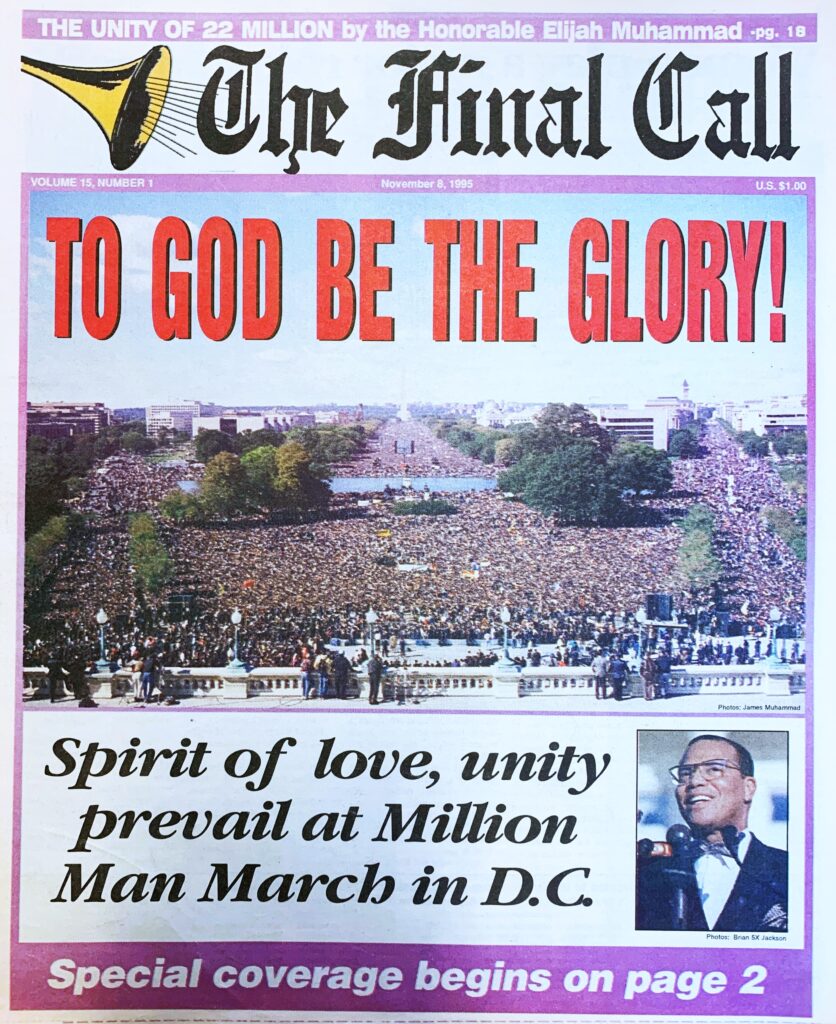
Rev. Mark Thompson, host of the progressive radio talk show, “Make It Plain,” and others interviewed by The Final Call called that day one of the greatest in the history of Black people that must never be forgotten and that the message, principles and themes must be incorporated into the very fabric of Black life.
“We must find a way to continuously remind our people and our brothers, especially of the sacredness of that day and the pledge we took to defend our homes and our communities and particularly our women,” stated Rev. Thompson.
“We have succumbed too much to social media. We have allowed social media to pit us as Black men against Black women for no reason. We have allowed social media to divide us and have us compete against one another.
If we are real men, nothing should make us insecure about any of the accomplishments of our women. We are one family,” Rev. Thompson told The Final Call.
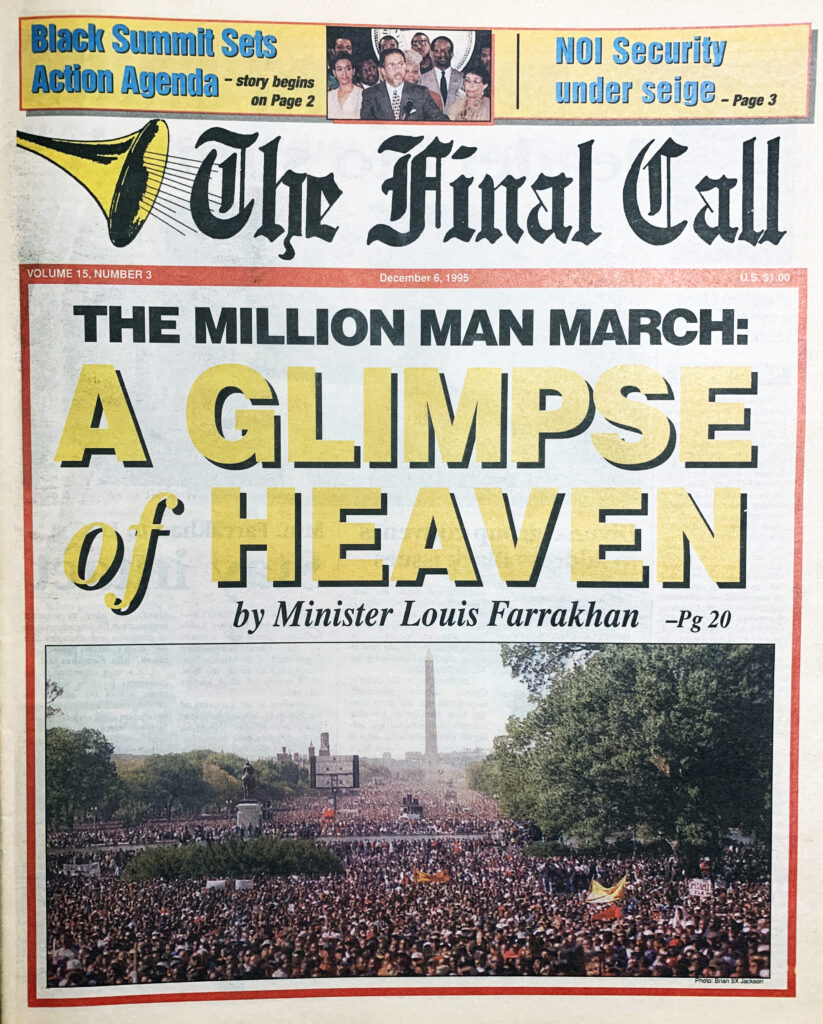
In terms of the prevalence of various conflicts within the Black community, he said Blacks must relearn who is the God of their people and who are the prophets. Some think the personalities and people with the most clicks and likes on social media are their gods and prophets, he stated.
According to Rev. Thompson, the number one target group for misinformation and disinformation on social media is that of Black men, and that misinformation and disinformation is leading to a disbelief that they are not one African/Black people and one family.
“No social media personalities should be reinventing any wheels. The prophets who have served our people throughout history, going back to ancient Kemet, have already laid out the instructions and the assignments.
We just need to pick up where they left off,” said Rev. Thompson. That is important, he added, because, “Otherwise, we will fail and become mere capitalist consumers on the hamster wheel of banality, reaction and routine-ness, with no forward progress—just running in place.”
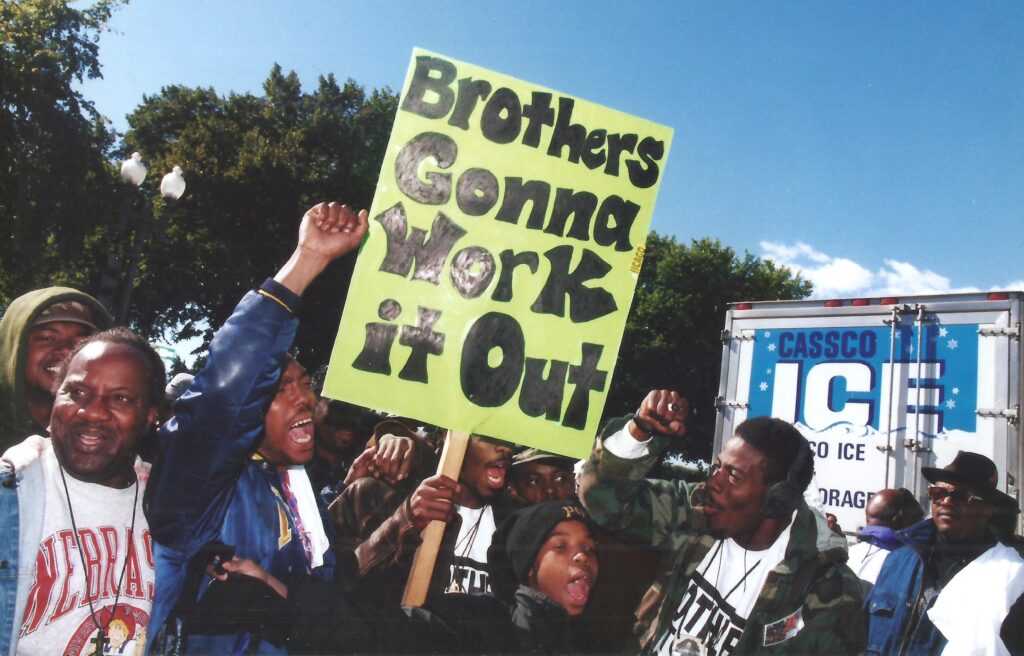
Bob Law, who served as the New York statewide chairperson for the Million Man March, stated it’s still the only march that called on the strength and resources of Black men. “It’s the only time in history when Black men were pulled into our own wellspring of power.
We were tapped into the power and potential of Black men,” said Mr. Law, a veteran broadcaster, and radio personality, who used his voice as host of the popular “Night Talk” on the National Black Network to spread the word about the Million Man March. It was the first nationally broadcast daily Black call-in show.
Ever since the Million Man March, many have been asking how to renew and harness that energy and power to refocus Black people on service, continued Mr. Law, and much has happened globally, he added.
Still, it comes back to the resources of Black men, the power is still there even though some of those who spoke that day and helped to organize the gathering have passed away, he explained. Also, with newer generations, some people were not even born in 1995 or were young boys then. But still, the power is there, Mr. Law reiterated.
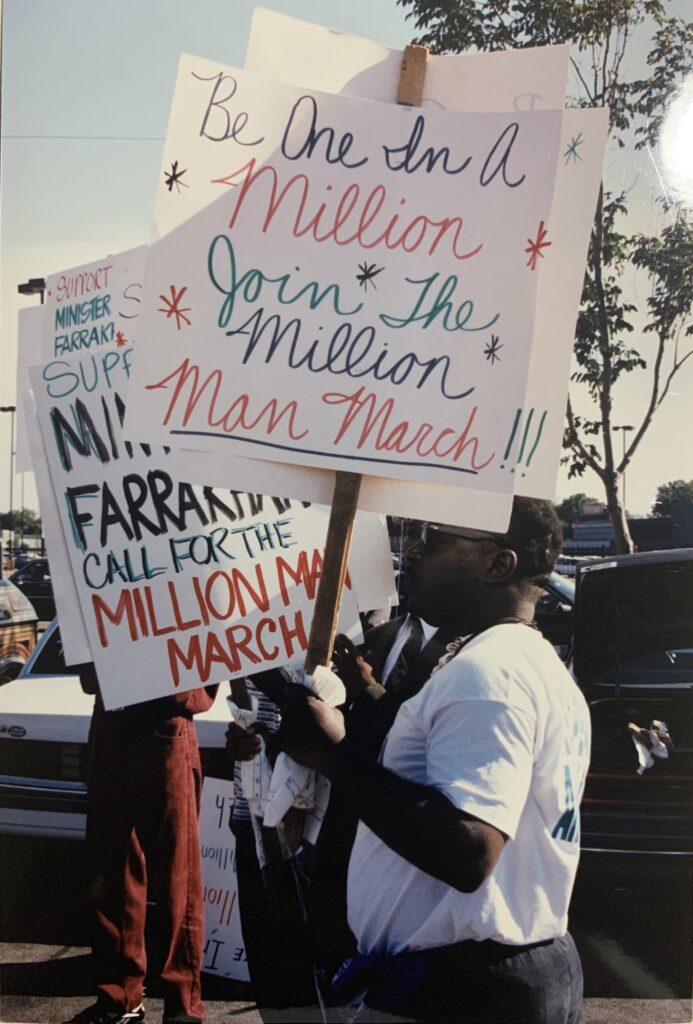
“It has been about freedom. And what’s hanging in the balance, right now, is a question of freedom and power, still. And it is the Million Man March that understands the validity of power … understood and is still the only place where the possibility of redemption is in the hands still of Black men,”
Stated Mr. Law. “We would have to recognize the validity of power and that Black men have the responsibility to harness that power once again,” he added.
Pastor Willie Wilson, retired lead pastor of Union Temple Baptist Church in Washington, D.C., reflected on the 29th anniversary of the Million Man March, highlighting the unprecedented unity of Black men from various backgrounds and religions.
There were great pastors from all Christian denominations, Hebrew Israelites, various religions, social and fraternal organizations, and professional associations. Pastor Wilson served as co-chair of the Washington, D.C. Local Organizing Committee for the March.
“And it was just one of those … points in history where you know it had to be God bringing it all together because when you consider how difficult it has been historically for us to come together as a collective of people, this demonstrated that indeed we can do it,” Pastor Wilson told The Final Call.
Pastor Wilson emphasized the need for rebuilding the Black community, which he said has been severely damaged by 50 years of the “weaponization” of hip hop, the crack cocaine epidemic, and mass incarceration.
“But when you talk about almost a million Black men who were taken out of our communities, when you add to that the negative lyrics of gangsta rap, when you add to that the crack cocaine epidemic.
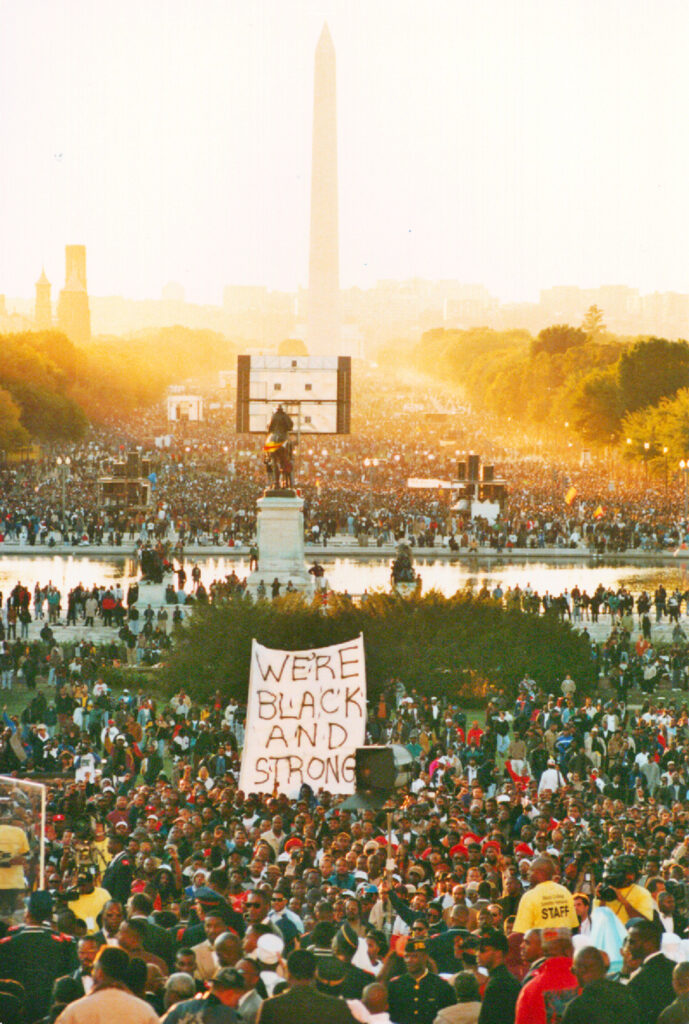
We’re talking about 50 years of three things that have been so devastating in terms of eroding a sense of unity and family in our community. So, we must be in a rebuilding mode to rebuild what has been so severely shattered by those three things,” he continued.
Restore the Black family and community by focusing on the principles of the Million Man March, and provide teachings that emphasize spirituality, collective unity, and care for one another, rather than individualistic “prosperity theology,” Pastor Wilson recommended.
According to broadcaster Bev Smith, who was one of the Black women who used their voices to promote and support the Million Man March, the question of renewing spiritual value and focusing on a higher level of thought activity as a continuation of what was given by Minister Farrakhan in 1995 is a tough one to answer.
She told The Final Call she thinks it is because the attitude of Blacks in America during that time was different than it is now.
To renew and harness once again the spirit of the Million Man March, Ms. Smith thinks it would take calling a larger Black community including elders, parents, grandparents and preachers together.
That is difficult to do, she said, but it must be tackled as it has never been done before, said Ms. Smith, who hosted “Our Voices,” a popular show on BET (Black Entertainment Television, which was owned by Bob Johnson at the time).
Fredrica Bey played a significant part in organizing in Newark, N.J., for the March by establishing a successful organization, Women in Support of the Million Man March (WISOMMM).
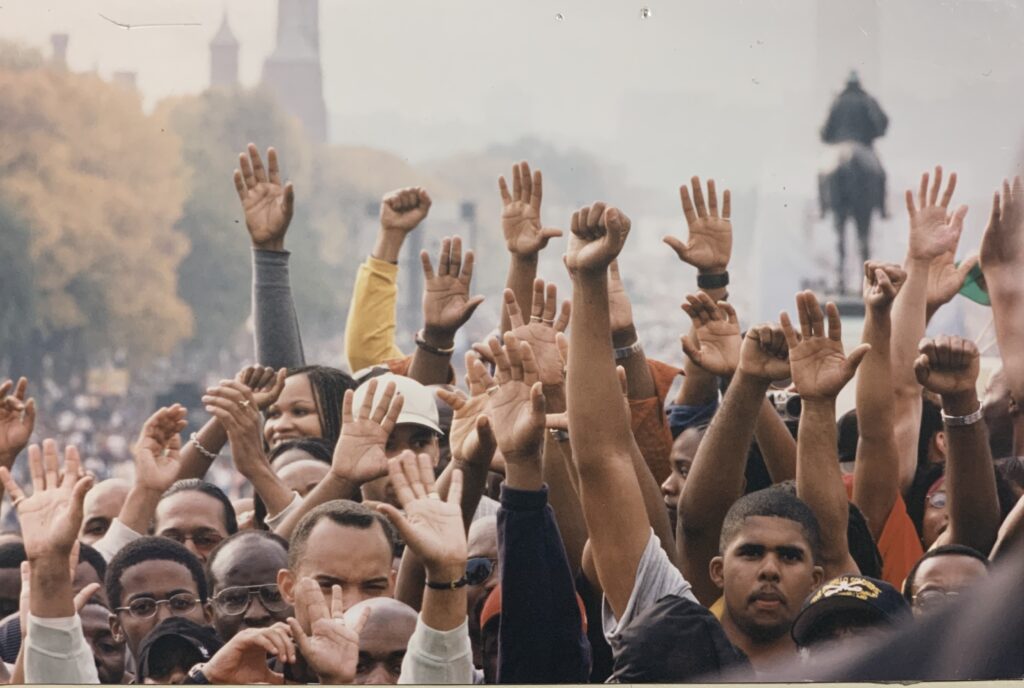
“If there was an event or a statement about uplifting the Black man and woman and unifying the Black man and woman at home and abroad, that was a statement made by the Honorable Minister Louis Farrakhan in the Million Man March Pledge, the 10 points that he had the brothers pledge to,”
Said Ms. Bey to The Final Call. The tenets of the March were so clear that she thinks the principles need to be pronounced in terms of teaching and implementing them.
“I’m so glad you asked that question because we’re getting ready to have a Sister Circle meeting, so I’m going to do that, and I’m suggesting we all do that 10-point program, in honor of the Million Man March,” she added.
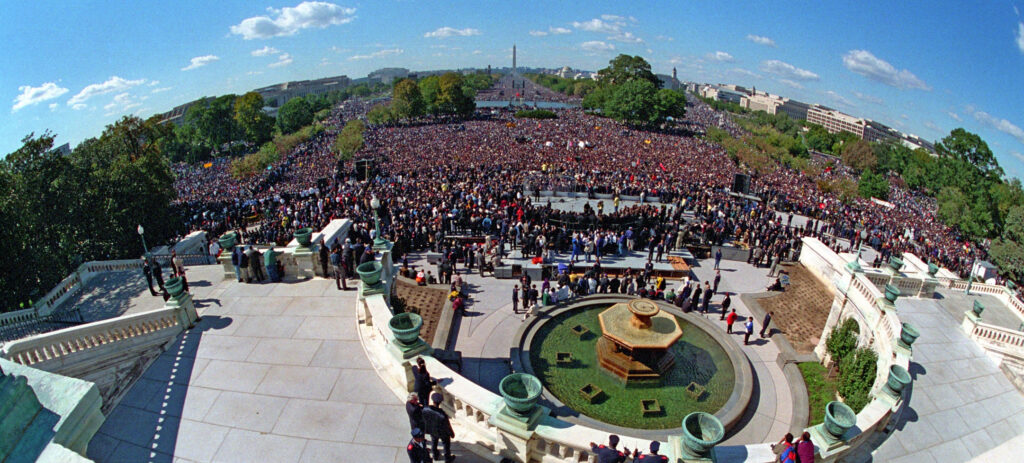
Rev. Thompson feels that all young Black people should learn the Million Man March Pledge, taken by Black men at the March, as the Minister has said, to be better fathers, better men, community and world builders, respecters, and protectors of their women and children and non-violent with one another, except in self-defense.
Learn the pledge from that day, stated Rev. Thompson, “and not whine about what the White man or what a particular political party is not doing for them, but rather stand up, backs straight and do for ourselves. And doing for ourselves requires love for ourselves and our people. We must stop giving in to self-hatred,” he said.
Please see page 24 for the Eight Steps of Atonement and the Million Man March Pledge.
